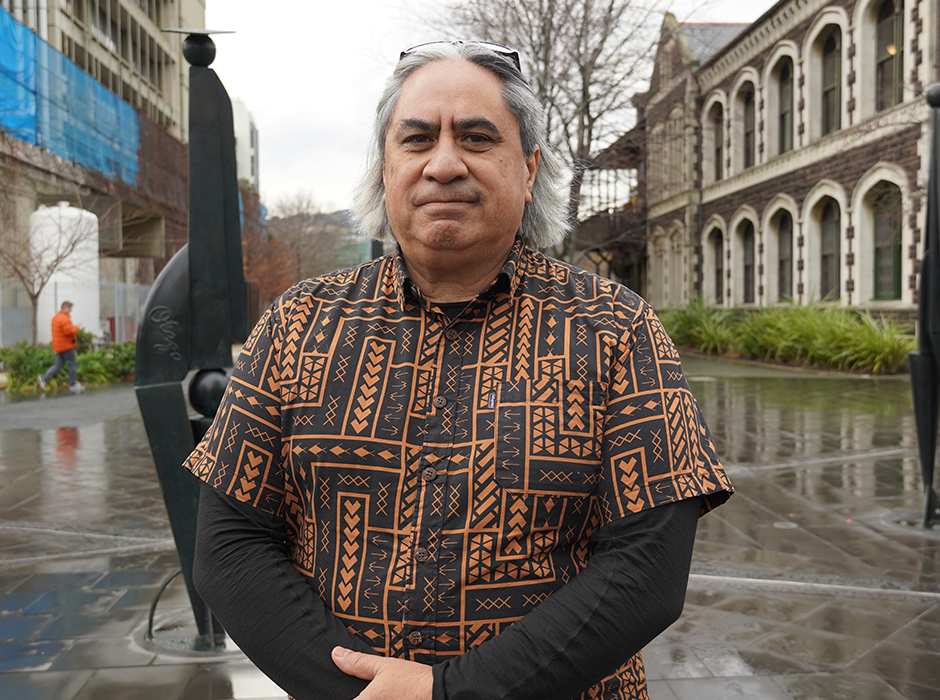
Dr Jesse Kokaua will not only study the drivers of poverty, but will also investigate “resilience techniques” that help keep Pacific families well under these circumstances.
Pacific resilience in the face of poverty will be the focus of one researcher’s work after securing more than $500,000 in the latest Health Research Council funding round.
Senior research fellow and statistician Dr Jesse Kokaua, of the Va’a O Tautai in the Division of Health Sciences, was awarded the Pacific Health Research Emerging Leadership Fellowship and is researching how Pacific ethnicity groups respond to poverty and what they each do differently to negotiate its effects.
It is well-documented that low socioeconomic status have a major impact on health, he says.
“If you look at areas of socioeconomic deprivation, there are pockets of poverty for sure, but there are also pockets of relative wellness in there. I’m interested in how communities stay well under those circumstances.”
Jesse, who is from the Cook Islands, aligns his understanding of health with the holistic Fonofale model and defines wellness as “the promoting of factors that contribute to physical, mental and cultural health”.
“Wellness is not just the avoidance of ill physical health, it’s that Fonofale version of health and wellbeing that involves the environment, the family, the physical, cultural and spiritual elements.”
His current research was inspired by his previous HRC-funded project, which looked at the role of education on the health of Pacific families. That research left him with as many questions as it answered.
He was struck to find that there were discrepancies in how different Pacific ethnic groups were affected by economic factors like income and socioeconomic deprivation.
“In terms of their children's health and taking account of parental education and other influences, Cook Islands families seemed to be more affected by income and deprivation than, say, Tongan families. That’s what I found, but I don’t understand it. So the idea for this project is to look at what’s happening.”
While Jesse will investigate the drivers of poverty, which he says are the factors involved in increasing or decreasing poverty, he is more interested in learning about the resilience techniques that keep Pacific families well under these circumstances.
“Ultimately I’d love to be able to whittle it down to ‘lessons’, things that each community does that are hopefully transferable to other communities.
“If I have anything close to a hypothesis, it would be that different island groups counter the effects of poverty in different ways, and the main thing is that there are things that each can teach each other about those coping mechanisms.
“Is it groundbreaking, revolutionary stuff? No. It’s just small things that hopefully are useful to them. Things that just help a little. Most of us do things to help things get better in small ways. If we keep chipping away at that, we’ll ultimately get to a better place as a nation,” Jesse says.
Despite being a numbers man, Jesse will employ a mixed method approach that will involve a blend of quantitative and qualitative data collection, to “build a three-dimensional picture from a two-dimensional data driven picture”.
Rather than providing lessons on how to escape poverty, Jesse aims to offer strategies to lessen the harm poverty causes to the health of Pacific communities.
“Knowing that home ownership is a factor to get above poverty isn’t the only answer, is it?
“What’s the point of recommending it when the institution is such that it may not be an achievable thing?”
He wants to find solutions that can be pitched to Government and policy-makers, without forgetting that “things happen at a community level” and “most effective things happen within our communities”.
“The outcome will be that Pacific as a whole will know what will set them up, will give them tools that will help them reduce the impact of poverty on their families, and therefore improve their health.
“I always hope that it will lead to better educational outcomes, employment outcomes and better quality of life outcomes for Pacific Peoples.
“Ultimately, I’d like to see our communities have better rates in all of those. I don’t believe we need to be so concerned about comparing ourselves to children in Austria, but I think we should set ourselves on a pathway to always be better than they currently are,” Jesse says.
Kōrero by Keilah Fox